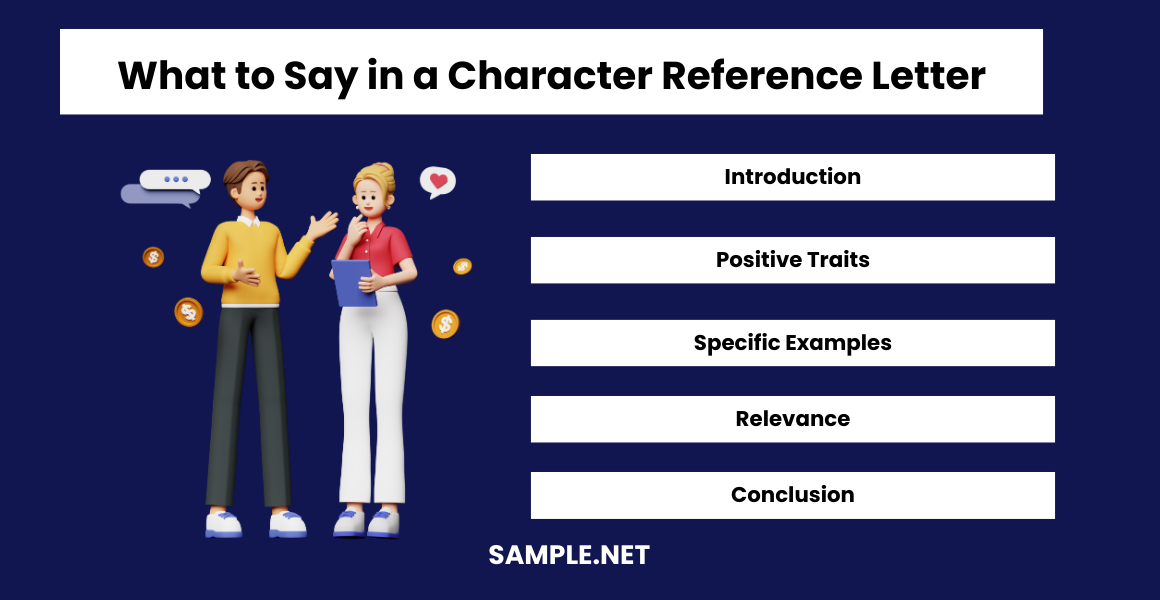Character Reference Letter Sample
-
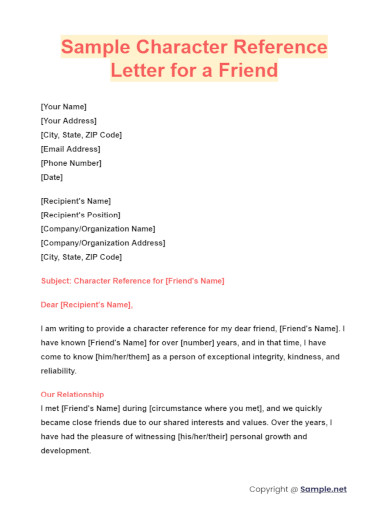
Sample Character Reference Letter for a Friend
download now -
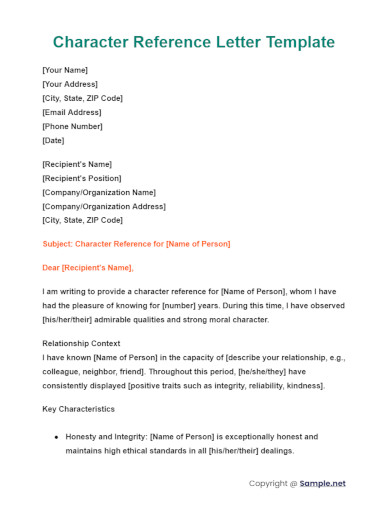
Character Reference Letter Template
download now -
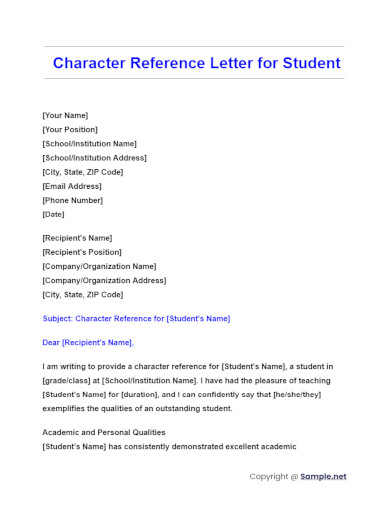
Character Reference Letter for Student
download now -
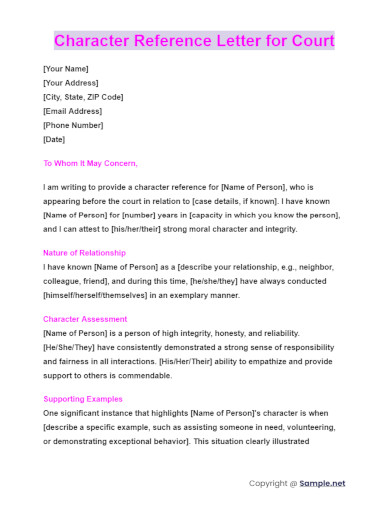
Character Reference Letter for Court
download now -
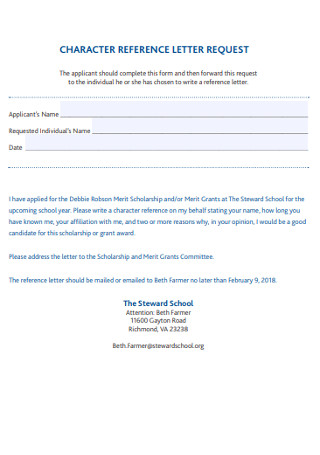
School Character Reference Letter
download now -
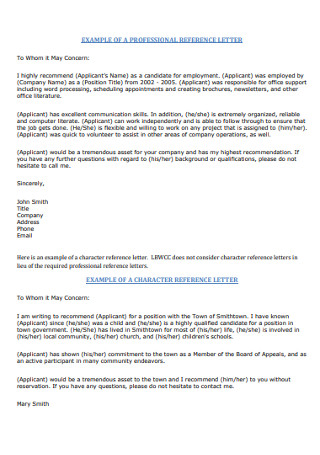
Professional Charector Reference Letter
download now -
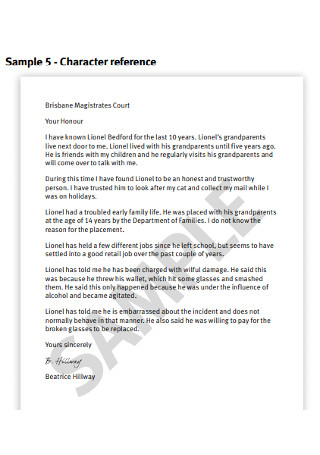
Magistrates Court Character Reference Letter
download now -
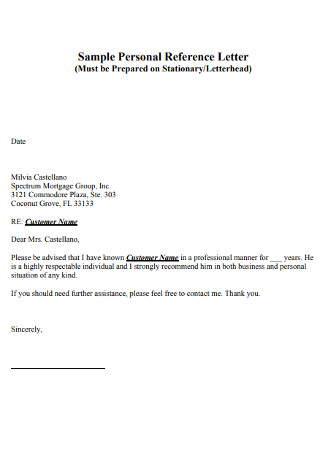
Sample Personal Reference Letter
download now -
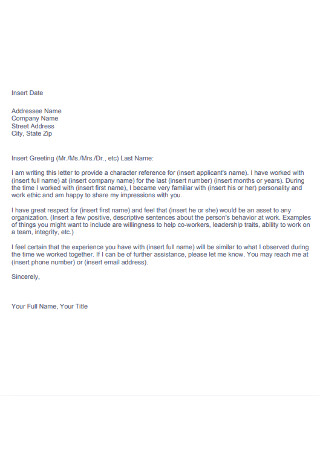
Company Character Reference Letter
download now -
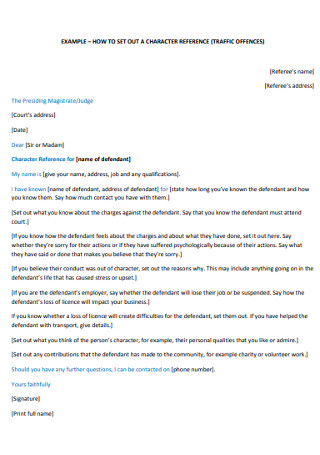
Charector Reference Traffic Offence Letter
download now -
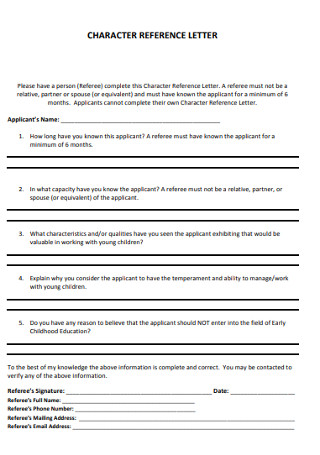
Basic Character Reference Letter
download now -
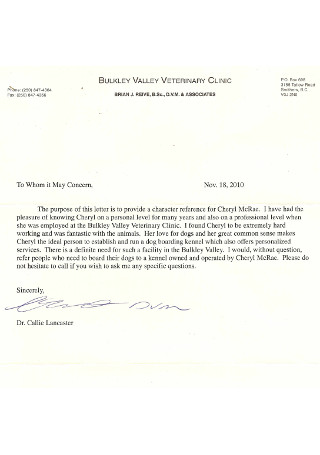
Veternity Clinic Character Reference Letter
download now -
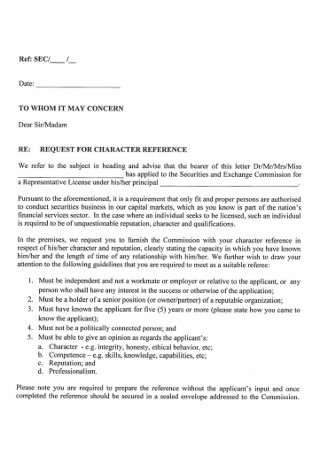
Request for Character Reference Letter
download now -
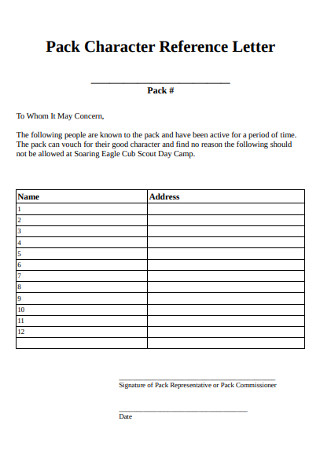
Pack Character Reference Letter
download now -
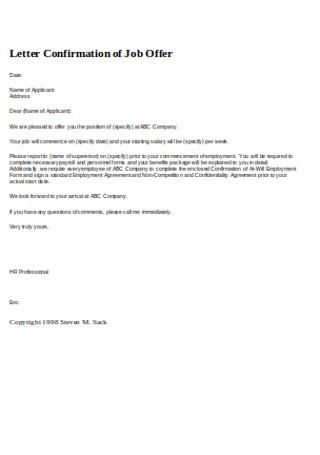
Job Conformation Reference Letter
download now -
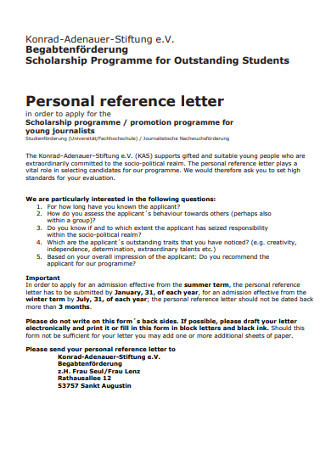
Student Personal Reference Letter
download now -
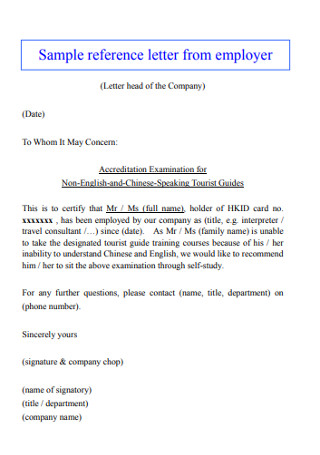
Sample Reference Letter From Employer
download now -
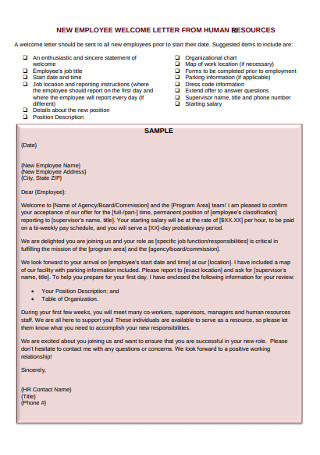
HR Job Reference Letter
download now -

Student Personal Reference Letter
download now -
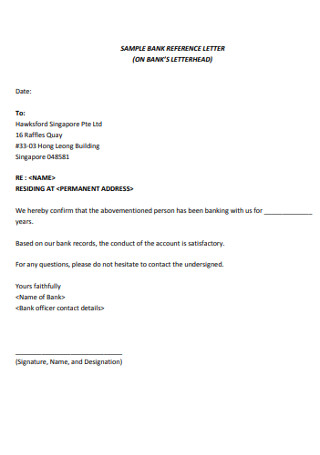
Bank Personal Reference Letter
download now -
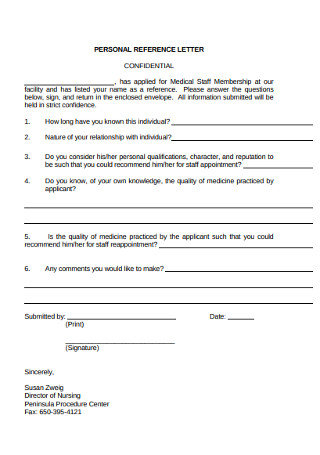
Confidential Personal Reference Letter
download now -
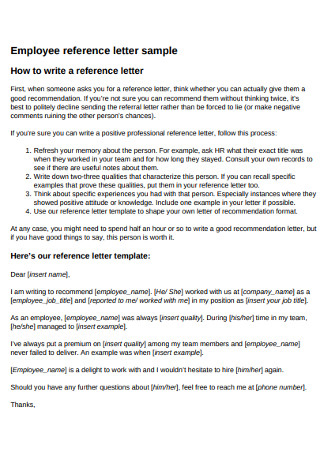
Sample Employee Reference Letter Sample
download now -
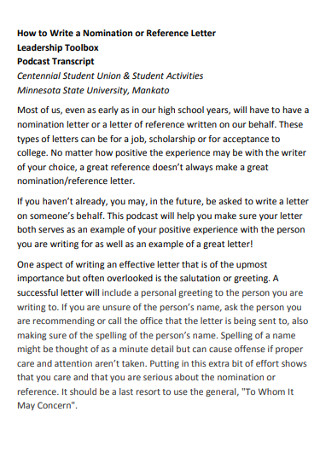
Personal Nomination Reference Letter
download now -

Sample Employee Reference Letter
download now -
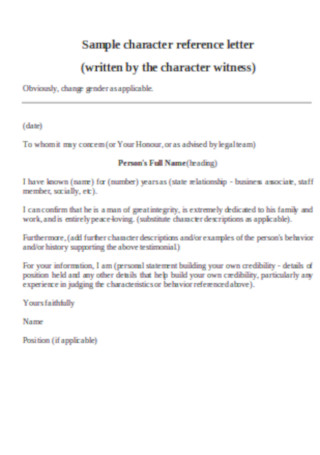
Sample Character Reference Letter
download now
FREE Character Reference Letter s to Download
Character Reference Letter Format
Character Reference Letter Sample
What Is a Character Reference Letter?
Types of Character Reference Letters
Key Points of a Comprehensive Character Reference Letter
Advantages of Writing an Effective Character Reference Letter
9 Steps for Developing an Appealing Character Reference Letter
What Should You Do If You’re Looking for References?
Who Should You Approach for a Character Reference?
What to Say in a Character Reference Letter?
How Do You Write a Character Reference Letter?
What to Put in a Character Reference Letter?
What to Include in a Character Reference Letter
How To Write A Character Reference Letter For A Friend Or Family Member
When should you seek a character reference?
How do I end a character reference letter?
How do you write a short reference letter for a friend?
What does a judge look for in a character letter?
How long should a character reference be?
What to say as a reference for someone?
Can a character reference be a family member?
How to write a personal reference letter for someone?
Download Character Reference Letter Bundle
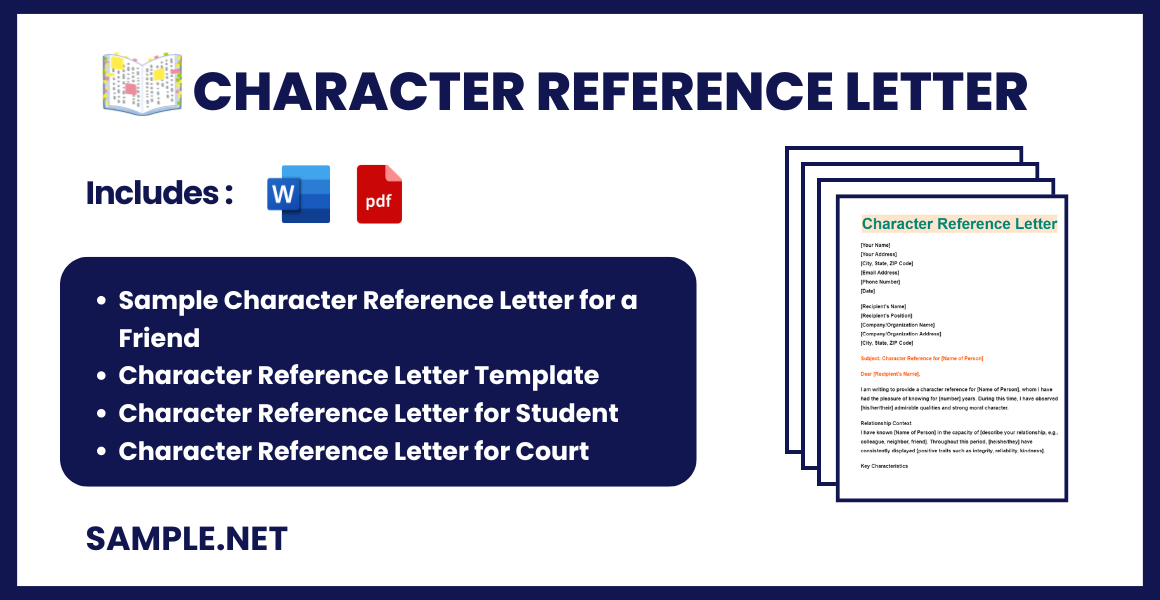
Character Reference Letter Format
[Your Name]
[Your Address]
[City, State, ZIP Code]
[Email Address]
[Phone Number]
[Date]
[Recipient’s Name]
[Recipient’s Position]
[Company/Organization Name]
[Company/Organization Address]
[City, State, ZIP Code]
Subject: Character Reference for [Name of Person]
Dear [Recipient’s Name],
I am writing to provide a character reference for [Name of Person]. I have known [Name] for [number] years in [capacity in which you know the person], and I can confidently say that [he/she/they] possesses exceptional character and integrity.
Professional/Personal Relationship
Describe your relationship with the person, including how long you have known them and in what capacity.
Character Attributes
Highlight key attributes that make the person stand out, such as honesty, reliability, work ethic, etc.
Examples
Provide specific examples that illustrate the person’s character and qualities.
Conclusion
Summarize your recommendation and offer your contact information for any further questions.
Sincerely,
[Your Name]
[Your Position]
What Is a Character Reference Letter?
A character reference letter is a reference or recommendation letter which presents the characteristics and qualities of an individual from the perspective of another person. This document is written by a reference who is expected to know the candidate for some time. A lot of character reference letters are used in the processes of hiring, recruitment, and employment. However, the usage of the specific document is not limited to these. There are also character reference letters that are developed for academic-, community-, and personal-related purposes.
Types of Character Reference Letters
There are different kinds of character reference letters that you can create depending on the purpose of the document’s usage. With this, you have to be very specific with how a specific person can benefit from the letter. If you are asked to be a character reference, make sure that you will ask a candidate or any individual who asked you to write one on where the character reference letter will be actually used. To serve as a guide, here are some types of character reference letters:
1. Character Reference Letters for Educational and Academic Endeavors
A character reference letter for educational and academic endeavors can come in different forms. Scholars need a character reference letter whenever they apply for a grant. Candidates for admissions also need a character reference letter during the processes of college application. More so, a character reference letter can be incorporated in an internship recommendation letter or a college recommendation letter if the reference wants to align the discussion of the characteristics of a candidate with the candidate’s academic background. You may also see Reference List
2. Character Reference Letters for Work Application
A character reference letter for work application is an essential document that employers review so they can have an idea about the behavior of a candidate. Employers need to make sure that their potential employee will not cause any harm in the operations or towards the stakeholders of the organization. Hence, a character reference letter is very important as it highlights the qualities which can present a work candidate as a well-mannered and sociable individual. You may also see Professional Reference Letter
3. Character Reference Letter for Personal Intentions
A character reference letter for personal intentions can be used by individuals who would like to join a non-profit organization, to try volunteering works, to get involved in community services, and/or to look for possible sponsors for a particular endeavor. If you are making this type of character reference letter, you have to clarify the special and specific purpose in which the document will be used. Through this, you can focus on discussing the character of the person which are aligned with the processes where he or she will be immersed in if his or her application gets accepted. You may also see Consent Letter
Key Points of a Comprehensive Character Reference Letter
There are specific items that are essential to be included in a character reference letter. If you want to have a detailed and complete document, it is of utmost importance for you to look into all the subject matters that should be seen by the screening committee in the letter that you will make. If you are already in the midst of planning the content presentation and discussion flow of the specific document, the key points of a comprehensive character reference letter are as follows:
Advantages of Writing an Effective Character Reference Letter
Your character reference letter can greatly impact the chances of an individual to get accepted to a job, a university, an organization, or any other functions where the document will be used. Aside from this, there are many benefits that can be experienced by involved entities if you can make sure that your character reference letter is well-developed. The many advantages of writing an effective character reference letter include the following:
9 Steps for Developing an Appealing Character Reference Letter
When creating a character reference letter, you have to be very concise with the things that you will present. Since you are dealing with the characteristics of an individual, it is necessary for you to ensure that the document will be well-received by the screening committee. Knowing the crucial steps that you need to take so you can come up with a highly effective character reference letter should be on top of your priorities. Do you want to have a process guide for this endeavor? Here are nine steps that can help you develop an appealing character reference letter:
Step 1: Download a Character Reference Letter Template That You Can Modify
Utilize a character reference letter template so you can easily structure the entire layout format of the document. You can use a letter of reference long template or a letter of reference short template depending on the number of details that you would like to discuss in the document that you will be making. You may also see Formal Letter
Step 2: Present Basic Business Letter Content
Write the date when you have written the character reference letter. After this, place an inside address followed by a subject line and/or a salutation. You have to ensure that all the basic details of a business letter are found in your character reference letter so you can present formality to the letter recipient.
Step 3: Write an Introduction Which States the Purpose and Other Key Points of the Letter
Let the reader know that you are writing the letter to act as the reference of a candidate. Present the purpose of the letter and state why you have decided to serve as the other person’s reference. Your introduction should be able to catch the attention of the screening committee so they can become more interested to read and review the rest of the letter.
Step 4: Tell Something About Yourself and Your Relationship With the Candidate
Make sure to specify the kind of relationship that you have with the candidate. Aside from this, you can also tell a few things about yourself. Introducing who you are and why you are a suitable reference can make it easier for you to get the trust of the entities who will look into the character reference letter. You may also see To Whom It May Concern Letter & Email
Step 5: Discuss the Qualities of the Candidate That You Are Impressed With
The most important part of the character reference letter is the provision or discussion of information aligned with the candidate’s personality and characteristics. Describe the qualities of the person which you think makes him or her a suitable candidate. It will be best if you can be concise with your presentation so the letter recipient can easily and precisely get what you mean.
Step 6: Provide Instances Where You Have Seen a Candidate’s Characteristics in Action
Prove to the screening committee that you are not only making up your statements. Think of personal experiences, observations, and circumstances where you were able to see how a person exemplified his or her character. Having two to three instances with different set-ups can enable you to assure the readers of the letter that you are a credible source of first-hand information. You may also see Apology Letter
Step 7: Develop a Conclusion That Can Most Likely Appeal to the Screening Committee
To end the character reference letter, make sure to have a conclusion where you will restate your willingness to become someone’s character reference because you believe in him or her. Your conclusion should be memorable so that the candidate whom you are trying to recommend or refer can also be well remembered by the letter recipient. You may also see Explanatory Letter
Step 8: Refine All the Details of the Character Reference Letter
Finalize your character reference letter. Make sure that there are no more errors in the document. Update or modify things if necessary so you can ensure the accuracy and precision of all the details of the character reference letter before you submit it to your target reader.
Step 9: Put a Complimentary Close and a Signature Block at the Bottom of the Character Reference Letter
Use a complimentary close to formally and professionally close the character reference letter. After this, affix your signature in the signature block where your name and work designation are both located.You may also see Board Resolution Letter
What Should You Do If You’re Looking for References?
Are you looking for your first job or have you been out of work for a while? Do you require a recommendation but lack professional references, or are you concerned about the references provided by your employer? You may require a character reference while applying for jobs or school, but you may also need one when asking for a bank loan or when renting an apartment. A reference is a vote of confidence in a candidate from an employer, school, landlord, or bank. You may also see Letter of Employment
Who Should You Approach for a Character Reference?
Inquire of someone you know well and who can attest to your character and ability. You might be able to get a reference from your neighbors or acquaintances. Referrals from business associates, professors/academic advisors, clients, and vendors are also useful. You might even be able to utilize a friend as a job reference. Consider using leaders or other members of the group as personal references if you volunteer. You may also see Letter Of Explanation
What to Say in a Character Reference Letter?
A character reference letter provides insight into a person’s character and behavior. Here are five key points to include:
- Introduction: Start with a brief introduction of who you are and your relationship with the person.
- Positive Traits: Highlight the individual’s positive traits and provide examples.
- Specific Examples: Offer specific examples that demonstrate the person’s character.
- Relevance: Explain why these traits are relevant to the situation at hand.
- Conclusion: Summarize your recommendation and provide contact information for further questions. You may also see
How Do You Write a Character Reference Letter?
Writing a character reference letter involves a few straightforward steps:
- Begin with a Greeting: Address the letter to a specific person if possible.
- State Your Intent: Clearly state that you are writing a character reference letter.
- Provide Context: Describe how you know the person and for how long.
- Discuss Their Character: Include detailed observations and examples of their behavior.
- Close Politely: End with a positive note and offer to provide further information if needed. You may also see Explanation Letter
What to Put in a Character Reference Letter?
When writing a character reference letter, include the following elements:
- Contact Information: Include your name, address, phone number, and email.
- Salutation: Address the recipient by their title and name.
- Relationship Explanation: Explain how you know the person.
- Character Description: Describe the person’s key qualities and provide anecdotes.
- Recommendation Statement: Clearly state your recommendation. You may also see Petition Letter
What to Include in a Character Reference Letter
A comprehensive character reference letter should include:
- Introduction of Writer: Briefly introduce yourself and your relationship with the person.
- Character Traits: Highlight specific positive character traits.
- Examples and Evidence: Provide anecdotes and examples to support your claims.
- Relevance to Purpose: Explain how these traits are relevant to the Job Reference Letter, Personal Reference Letter, or Landlord Reference Letter.
- Contact Information: Offer your contact details for further queries.
How To Write A Character Reference Letter For A Friend Or Family Member
Writing a character reference letter for a friend or family member can be personalized yet professional:
- Introduction: Start with your relationship and the length of time you have known them.
- Character Qualities: Describe their best qualities with supporting examples.
- Specific Incidents: Share specific incidents that highlight their character.
- Suitability for Role: Explain why they would be suitable for the job or situation.
- Conclusion: Summarize your recommendation and provide your contact information. You may also see
When should you seek a character reference?
Employers, institutions, volunteer opportunities, and professional groups may require character reference letters. If an employer does not seek a character reference when you apply for a job, you have the option of providing one. If you’re entering the job market for the first time and don’t have any professional references to provide, or if you’ve been out of the labor for a few years, additional information can help. You may also see Appeal Letter
How do I end a character reference letter?
End a character reference letter with a summary of your recommendation, offering to provide additional information, and including your contact details. This ensures clarity and openness for any Reference Check Form.
How do you write a short reference letter for a friend?
To write a short reference letter for a friend, briefly introduce yourself, state your relationship, highlight key positive traits, provide a specific example, and conclude with a strong recommendation. Include a Reference Page & Sheet if needed.
What does a judge look for in a character letter?
A judge looks for honesty, specific examples of positive behavior, and the individual’s impact on the community in a character letter. Ensure the Affidavit of Character is clear and credible.
How long should a character reference be?
A character reference should be concise, ideally one page. This length ensures the inclusion of essential details without overwhelming the reader. Use precise Character Witness Statement for clarity.
What to say as a reference for someone?
As a reference for someone, highlight their positive traits, provide specific examples of their good behavior, and state your strong recommendation. A brief Character Bio can add depth to your statement.
Can a character reference be a family member?
Yes, a character reference can be a family member, though some situations may prefer non-family references. If necessary, include a clear Excuse Letter explaining the context.
How to write a personal reference letter for someone?
To write a personal reference letter, introduce yourself, state your relationship, highlight positive traits with examples, and conclude with a strong recommendation. Include an Authorization Letter if formal permission is required.
In conclusion, Character Reference Letters are invaluable tools for various situations, offering personal insights that formal documents might miss. Whether you’re writing a Referral Letter, our guide provides the samples, forms, and templates you need to craft an effective letter. Remember, a well-written reference can make a significant impact, so take the time to ensure yours is thoughtful and comprehensive.

